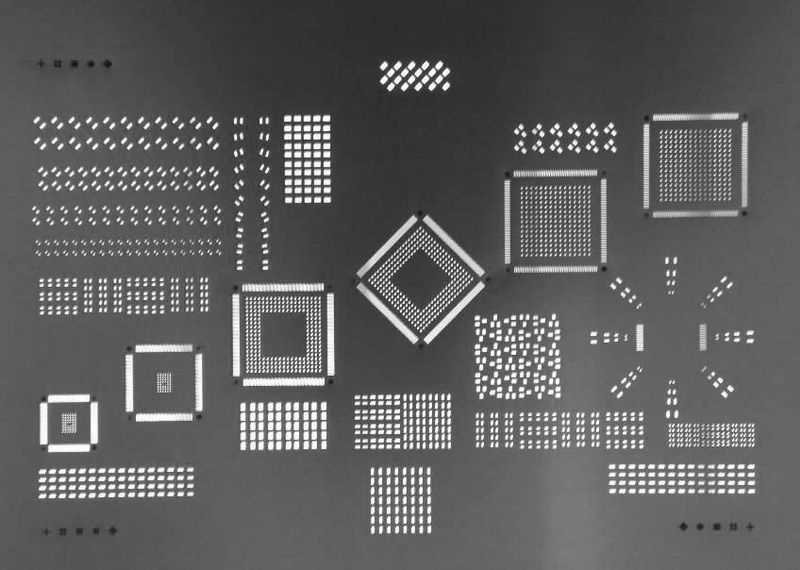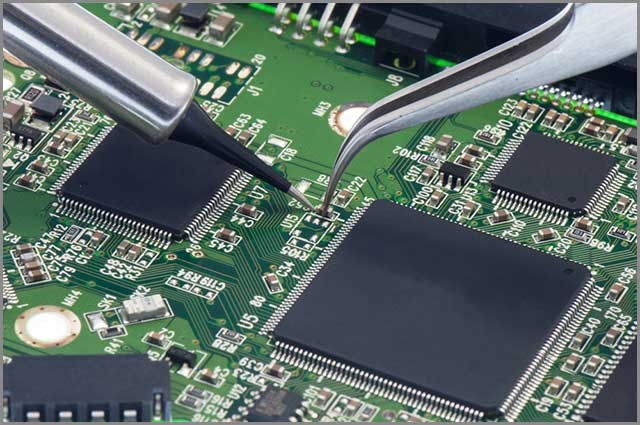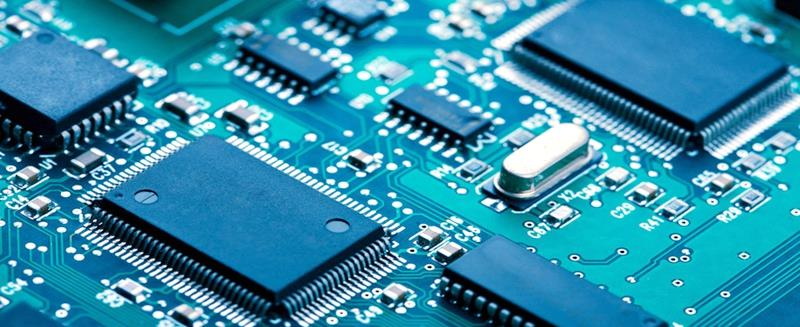Content Menu
● Understanding Wholesale PCB SMT Machines
● Key Features to Look for in a Wholesale PCB SMT Machine
>> 1. High-Speed and High-Precision Placement
>> 2. Versatility and Component Compatibility
>> 3. User-Friendly Software Interface
>> 4. Energy Efficiency and Environmental Considerations
>> 5. Robust Build Quality and Reliability
>> 6. Scalability and Modular Design
>> 7. Integrated Quality Control Systems
>> 8. Comprehensive After-Sales Support and Training
>> 9. Cost-Effectiveness and Competitive Pricing
● Additional Features to Consider
>> Advanced Robotics and Automation
>> Smart Manufacturing Integration
>> Lead-Free and Fine Pitch Assembly Capability
>> Conveyor and Material Handling Systems
● Conclusion
● Frequently Asked Questions (FAQ)
>> 1. What is the advantage of buying a wholesale PCB SMT machine compared to individual units?
>> 2. How important is the software interface in a wholesale PCB SMT machine?
>> 3. Can wholesale PCB SMT machines handle fine-pitch components?
>> 4. What quality control features should I look for in a wholesale PCB SMT machine?
>> 5. How scalable are wholesale PCB SMT machines for growing production needs?
In the rapidly evolving electronics manufacturing industry, Surface Mount Technology (SMT) machines play a pivotal role in assembling printed circuit boards (PCBs) efficiently and accurately. For businesses aiming to scale their production or optimize costs, investing in a wholesale PCB SMT machine is a strategic decision. However, selecting the right wholesale PCB SMT machine requires careful consideration of various features to ensure it meets production demands, quality standards, and budget constraints.

This comprehensive guide will explore the essential features you should look for when choosing a wholesale PCB SMT machine, helping you make an informed decision that enhances your manufacturing capabilities.
Understanding Wholesale PCB SMT Machines
Wholesale PCB SMT machines are equipment designed to place surface mount devices (SMDs) onto PCBs in bulk, facilitating high-speed and precise assembly processes. These machines are typically sold in larger quantities or production lines, offering cost advantages and scalability for manufacturers.
Wholesale options often include a range of SMT equipment such as pick-and-place machines, solder paste printers, reflow ovens, and inspection systems, all integrated or compatible to streamline PCB assembly.
Understanding the role of each component in the SMT process is essential. The pick-and-place machine is responsible for accurately positioning components on the PCB, while solder paste printers apply solder paste to pads. Reflow ovens then melt the solder paste to secure components, and inspection systems verify assembly quality. When purchasing wholesale, it is common to acquire a combination of these machines to establish a complete SMT production line.
Key Features to Look for in a Wholesale PCB SMT Machine
1. High-Speed and High-Precision Placement
One of the most critical features of a wholesale PCB SMT machine is its ability to place components quickly without sacrificing accuracy. High-speed placement is essential to meet production volume targets and reduce cycle times.
Look for machines equipped with multi-head placement systems and advanced vision alignment technology. These features enable the machine to handle multiple components simultaneously while ensuring precise positioning on the PCB, even for fine-pitch and small-sized components.
The accuracy of placement directly influences the yield and reliability of the final product. Machines with high repeatability and minimal placement error reduce the risk of defects such as tombstoning, misalignment, or solder bridging. Additionally, machines that support high-speed placement without compromising precision help manufacturers maintain competitive lead times.
2. Versatility and Component Compatibility
A good wholesale PCB SMT machine should be flexible enough to handle a wide variety of PCB types and component sizes. This versatility allows manufacturers to work on diverse projects without needing multiple specialized machines.
Check if the machine supports different component packages, from tiny 01005 chips to larger integrated circuits. The ability to adapt to various PCB thicknesses and materials is also important for broad application use.
Versatility also extends to the types of feeders and component supply systems the machine can accommodate. Machines that support a wide range of feeder types-such as tape feeders, tray feeders, and tube feeders-offer greater flexibility in component handling. This flexibility is particularly valuable when dealing with components from multiple suppliers or when switching between product lines.
3. User-Friendly Software Interface
Ease of operation is a significant factor, especially when scaling production or training new operators. A wholesale PCB SMT machine with an intuitive and user-friendly software interface simplifies programming, setup, and real-time adjustments.
Look for machines that offer graphical user interfaces, easy recipe management, and remote monitoring capabilities. This reduces downtime and improves overall efficiency.
Modern SMT machines often incorporate software that supports offline programming, allowing operators to prepare jobs without halting production. Additionally, software that provides detailed diagnostics and error reporting can help quickly identify and resolve issues, minimizing production interruptions.
4. Energy Efficiency and Environmental Considerations
Modern manufacturing emphasizes sustainability and cost savings through reduced energy consumption. Wholesale PCB SMT machines designed with energy-efficient components and systems help lower operational costs and environmental impact.
Features such as optimized power usage, standby modes, and eco-friendly materials contribute to a greener production line.
Energy-efficient machines not only reduce electricity bills but also generate less heat, which can improve the working environment and reduce cooling requirements. Some advanced machines also incorporate environmentally friendly soldering processes and comply with international environmental standards, which can be important for companies aiming to meet regulatory requirements or enhance their corporate social responsibility profiles.
5. Robust Build Quality and Reliability
Durability is essential for machines expected to operate continuously in demanding production environments. Wholesale PCB SMT machines should be constructed with high-quality materials and components to ensure long-term reliability.
Machines with proven track records, backed by manufacturer warranties and strong technical support, reduce the risk of costly downtime and repairs.
Look for machines with solid mechanical structures, high-quality motors, and precision linear guides. These elements contribute to consistent performance and reduce maintenance frequency. Additionally, machines featuring self-diagnostic capabilities can alert operators to potential issues before they result in failure, further enhancing reliability.
6. Scalability and Modular Design
As production demands fluctuate, the ability to scale operations is crucial. Wholesale PCB SMT machines with modular designs allow manufacturers to add or upgrade components such as feeders, placement heads, or inspection units.
This flexibility ensures that the machine can grow with your business needs without requiring a complete system overhaul.
Modular machines also facilitate easier maintenance and upgrades. For example, if a new component type requires a different feeder or placement head, these can be added without replacing the entire machine. This adaptability is particularly valuable in industries where product designs evolve rapidly or production volumes vary seasonally.
7. Integrated Quality Control Systems
Maintaining high-quality output is vital in PCB assembly. Look for wholesale PCB SMT machines that incorporate inspection systems like Automated Optical Inspection (AOI) and solder paste inspection (SPI).
These integrated systems detect placement errors, solder defects, and component misalignments early in the process, reducing rework and improving yield.
Some machines also offer 3D inspection capabilities, which provide more detailed analysis of solder joints and component placement. Inline inspection systems that operate in real-time can immediately halt production if defects are detected, preventing defective boards from advancing further down the line.
8. Comprehensive After-Sales Support and Training
Purchasing a wholesale PCB SMT machine is a significant investment. Ensure the supplier offers comprehensive after-sales support, including installation, training, maintenance, and troubleshooting.
Reliable technical support helps maximize machine uptime and ensures your team can operate the equipment effectively.
Training programs tailored to your staff's skill levels can accelerate the learning curve and reduce operator errors. Additionally, suppliers who provide timely spare parts and remote assistance can minimize downtime and keep your production line running smoothly.
9. Cost-Effectiveness and Competitive Pricing
Wholesale purchasing typically offers cost advantages through bulk pricing. However, it's important to balance initial investment costs with long-term operational savings.
Evaluate the total cost of ownership, including maintenance, consumables, and energy consumption, to select a wholesale PCB SMT machine that delivers the best value.
Sometimes, a machine with a higher upfront cost but lower operating expenses and better reliability will be more economical over its lifecycle. Consider also the potential cost savings from improved yield and reduced rework enabled by advanced machine features.

Additional Features to Consider
Advanced Robotics and Automation
Some wholesale PCB SMT machines incorporate robotic arms and automated feeders to enhance precision and throughput. Automation reduces manual intervention, lowers labor costs, and improves consistency.
Robotic systems can handle complex tasks such as component sorting, tray loading, and PCB handling, further streamlining the assembly process.
Smart Manufacturing Integration
Machines compatible with Industry 4.0 standards enable real-time monitoring, data analytics, and process optimization. Integration with Manufacturing Execution Systems (MES) and Enterprise Resource Planning (ERP) software facilitates seamless production management.
Smart machines can provide predictive maintenance alerts, track production metrics, and support remote diagnostics, enhancing overall operational efficiency.
Lead-Free and Fine Pitch Assembly Capability
Ensure the machine supports lead-free soldering processes and can handle fine-pitch components for modern electronics. Lead-free soldering requires precise temperature control and handling to maintain quality.
Fine-pitch assembly capability is essential for high-density PCBs used in smartphones, medical devices, and other advanced electronics.
Conveyor and Material Handling Systems
Efficient transport of PCBs between assembly stages minimizes manual intervention and speeds up production. Conveyor systems integrated with SMT machines improve workflow and reduce handling errors.
Automated material handling also supports just-in-time manufacturing and reduces inventory requirements.
Conclusion
Selecting the right wholesale PCB SMT machine involves evaluating a combination of speed, precision, versatility, user-friendliness, energy efficiency, and scalability. Machines that integrate advanced placement technology, quality control systems, and robust support services provide manufacturers with the tools needed to enhance production efficiency and product quality.
By focusing on these essential features, businesses can invest wisely in wholesale PCB SMT machines that meet their current needs and adapt to future challenges, ensuring competitiveness in the dynamic electronics manufacturing market.

Frequently Asked Questions (FAQ)
1. What is the advantage of buying a wholesale PCB SMT machine compared to individual units?
Buying wholesale PCB SMT machines offers significant cost savings, bulk ordering options, and scalability for production operations. It allows manufacturers to equip entire production lines efficiently and negotiate better pricing and support terms.
2. How important is the software interface in a wholesale PCB SMT machine?
The software interface is crucial as it determines ease of machine programming, setup, and real-time adjustments. A user-friendly interface reduces operator training time, minimizes errors, and improves overall production efficiency.
3. Can wholesale PCB SMT machines handle fine-pitch components?
Yes, many wholesale PCB SMT machines are designed to handle fine-pitch components with high precision. Features like advanced vision alignment and multi-head placement systems enable accurate placement of very small components.
4. What quality control features should I look for in a wholesale PCB SMT machine?
Look for integrated inspection systems such as Automated Optical Inspection (AOI) and solder paste inspection (SPI). These systems detect defects early, ensuring high-quality PCB assembly and reducing rework costs.
5. How scalable are wholesale PCB SMT machines for growing production needs?
Wholesale PCB SMT machines often feature modular designs, allowing manufacturers to add or upgrade components such as feeders and placement heads. This scalability supports production growth without requiring complete equipment replacement.




















